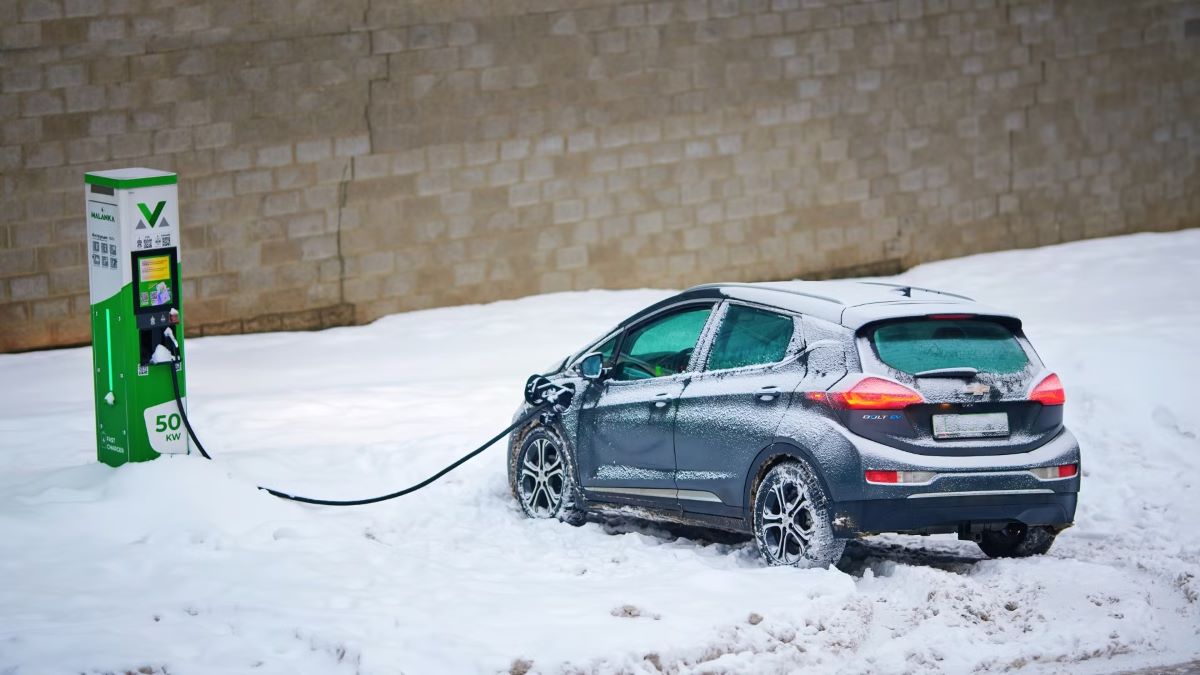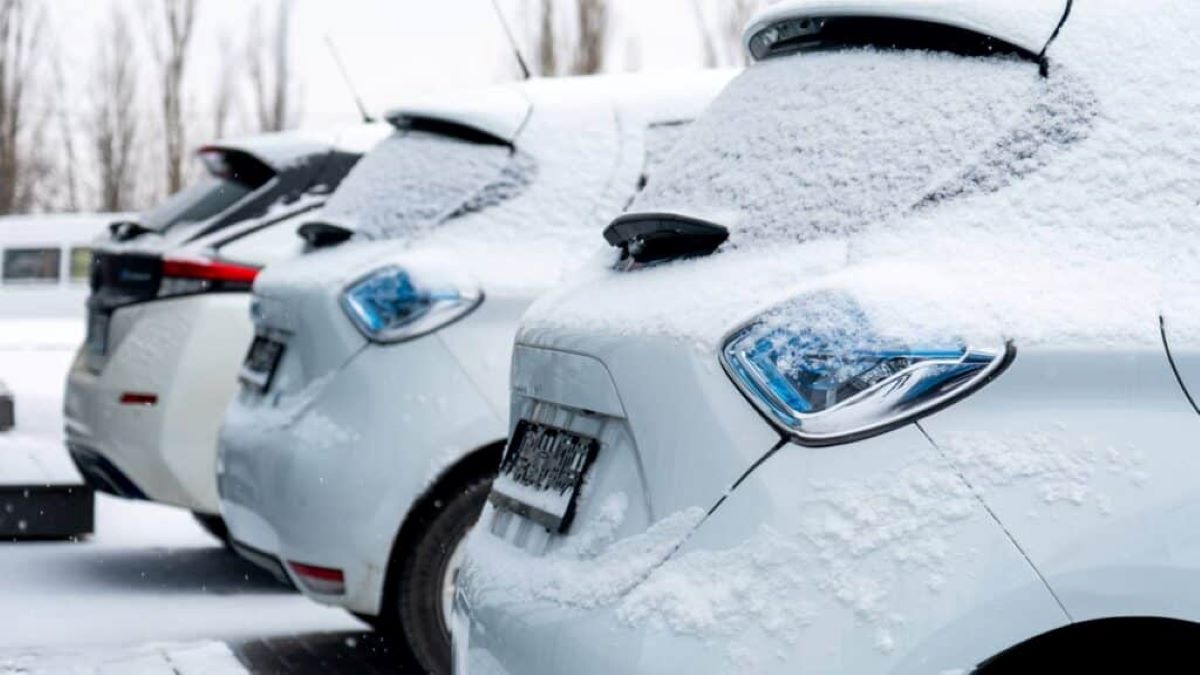Electric cars are still relatively new to the market, which means research is ongoing to improve their efficiency. A major question that remains is how much cold weather impacts their range and performance.
If you’re considering purchasing an electric vehicle (EV) or are heading into winter for the first time with your EV, this guide will help you understand what might happen when temperatures drop.
EV in Cold Weather: What’s the Problem?
Cold weather can affect the range and performance of electric vehicles. Compared to hybrid and traditional fuel vehicles, EVs can see a significant reduction in efficiency in cold temperatures. But why does this happen?
Unlike petrol, diesel, and hybrid cars that use engine heat to warm the cabin, electric vehicles depend on power from the same source that drives the electric motor.
Since EVs don’t have an engine that generates heat, they rely on the battery to generate warmth, which makes heating the car more challenging.
When the battery needs to work harder to generate heat, it consumes more power, which reduces the range you can achieve from a single charge.
Do Electric Cars Start in Cold Weather?
The simple answer is yes, electric cars will start in cold weather.However, just like traditional engines, they can experience starting difficulties when temperatures are low.
Cold weather can place additional strain on the battery and power unit.
This shouldn’t prevent you from starting the car, but you may need to allow more time for the car to warm up before you begin your journey.
How Much Range Do Electric Cars Lose in Cold Weather?
As mentioned earlier, the range of electric cars can decrease in winter because the battery is working harder to keep the cabin warm. The extent of this drop depends on the battery size and the outside temperature.
Most drivers care about mileage, particularly those who have long commutes or often drive longer distances.
Since EVs generally have fewer miles on a full charge than their petrol or diesel counterparts, the reduced range in winter is something to keep in mind.
Lower Temperatures
In brief, the colder the temperatures outside, the less range your EV will have.
The precise difference in range varies from one car to another due to different specifications, but nearly all electric vehicles will experience some reduction.
If you are concerned about the range being too low, this is an important factor to consider when choosing an EV.

Car Choice
The amount of range lost in cold weather can differ based on the make and model of the electric car.
Newer EV models tend to handle the cold weather better and require less energy to heat the cabin, allowing for a better range.
While these cars will still offer fewer miles in winter than in warmer months, they tend to perform better than older models.
EV Cold Weather Performance
It’s important to remember that electric vehicles are generally heavier than petrol and diesel cars, which could make them harder to control in adverse weather conditions. This could lead to longer stopping distances compared to similarly sized vehicles.
To mitigate this risk, it’s advisable to invest in a good set of winter tires, as you would with any car if you frequently encounter colder conditions.
On the positive side, the heavy battery in electric vehicles provides a lower center of gravity, which can enhance traction and handling in snowy weather.
Charging Your Electric Car in Cold Weather
When it comes to charging an electric vehicle in cold or extreme weather conditions, safety considerations are important.
Manufacturers have designed charging stations with protective layers and shields to prevent water from mixing with the electrical components, thus avoiding short circuits, sparks, and current loss.
Electric cars are also designed to handle rain and water intrusion, typically having an IP rating of around 67.
Therefore, there is no need to worry about safety concerns related to charging or driving in wet, cold weather.
While there are no added dangers to charging your car in cold conditions, the process may be slower than usual.
Tesla, for example, has noted that their Supercharger stations will charge vehicles at a slower rate in colder weather, and other public charging providers may experience similar slowdowns.
How Long Could Charging Take in Cold Weather?
You may experience longer charging times in the cold. A rapid charge that typically takes 30 minutes could take up to 45 minutes in winter, and your usual overnight charge could take several additional hours.
Combine this with the reduced range your vehicle may experience in colder weather, and there’s a greater chance of running out of charge mid-journey.
To avoid being stranded in the middle of winter, it’s wise to charge your car more often than usual. However, this could be costly if you use a home charger where you pay for electricity, or if the public charger requires payment.

